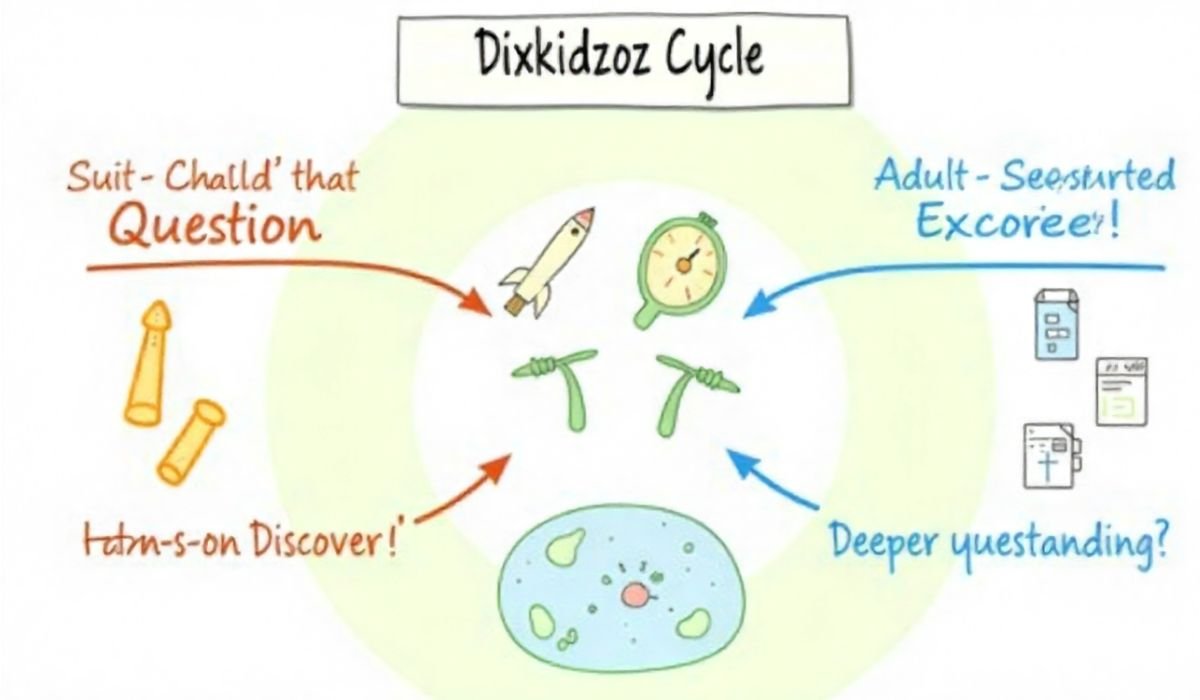Imagine the fragile hope sparked in a homeless student offered an educational trip – a chance to explore, learn, and just be a kid, free from the instability of shelters or motels. Now imagine that lifeline stolen, not by an outsider, but by the very official tasked with protecting it. That’s the stark reality exposed in the disturbing case of Linda Wilson, a former NYC Department of Education manager whose actions betrayed some of the city’s most vulnerable children.
Linda Wilson, then holding the crucial position of Queens Regional Manager for Students in Temporary Housing (STH), didn’t just drop the ball; she deliberately kicked it into her own family’s court. An investigation by the Special Commissioner of Investigation for the NYC School District (SCI) uncovered a calculated scheme where Wilson exploited her authority and taxpayer-funded grants intended for homeless students. Instead of enriching the lives of those struggling with housing insecurity, she diverted resources to benefit her own relatives on supposedly educational excursions. This isn’t just a story of one bad actor; it’s a chilling case study of internal corruption within the Linda Wilson NYC Dept of Education operation, demanding scrutiny and systemic change.
The Unraveling: How the Linda Wilson NYC Dept of Education Scheme Was Exposed
The SCI investigation, detailed in a damning report, painted a clear picture of deception and abuse. This wasn’t a simple oversight; it was a deliberate fraud built on falsification and manipulation:
- Forged Forms & Fabricated Needs: Wilson allegedly submitted fraudulent documentation, including forged parental consent forms and misleading justifications, to include her family members on trips funded by grants specifically earmarked for STH students.
- The Itinerary Illusion: Official trip itineraries presented to the DOE were carefully crafted to appear legitimate, masking the inclusion of unauthorized participants and the true nature of the activities benefiting Wilson’s family.
- Staff Intimidation & Complicity (Willing or Coerced): Testimony from DOE staff members under Wilson’s purview proved crucial. Some described feeling pressured to participate in or overlook the misconduct, highlighting a toxic work environment where speaking up seemed risky. Others provided direct evidence of the fraudulent activities.
- Misuse of Grant Funds: Taxpayer dollars and charitable grants, intended to bridge the opportunity gap for homeless children, were instead used to subsidize vacations and experiences for Wilson’s relatives. This diversion represented a direct theft from programs with critically limited resources.
The Mechanics of the Betrayal: How the Scam Operated
Wilson’s position gave her significant control over the STH program’s implementation in Queens. She exploited this authority in several key ways:
- Gatekeeper of Opportunity: As Regional Manager, Wilson had oversight of trip planning, student selection, and budget allocation for STH initiatives. This control allowed her to manipulate the process.
- Exploiting Trust & Bureaucracy: The complexity of the STH program and the inherent vulnerabilities of the population it served created cover. Wilson counted on overwhelmed staff and the transient nature of homeless families making oversight difficult and complaints less likely.
- Falsifying the Paper Trail: The creation of fake consent forms and doctored itineraries was central to the scheme, creating a veneer of legitimacy designed to bypass scrutiny.
Table 1: The Wilson Scheme vs. STH Program Intent
| Feature | Intended STH Program Purpose | Linda Wilson’s Exploitation |
|---|---|---|
| Beneficiaries | Students identified as homeless (living in shelters, motels, doubled-up, unsheltered) | Linda Wilson’s family members |
| Funding Source | Taxpayer dollars, Charitable Grants (e.g., McKinney-Vento funds) | Diverted STH grant funds |
| Trip Justification | Educational enrichment, social-emotional support, cultural exposure for vulnerable students | Personal vacation/benefit disguised as educational activity |
| Approval Process | Based on student need, parental consent, educational merit, budget allocation | Forged documents, falsified needs, manipulated itineraries |
| Oversight | DOE protocols, SCI audits, internal financial controls | Circumvented through falsification, staff pressure, exploiting program complexity |
The Human Cost: Students Left Behind
The most devastating aspect of this Linda Wilson NYC Dept of Education scandal isn’t the bureaucratic failure; it’s the stolen opportunities from children already facing immense challenges:
- Lost Educational Experiences: These trips aren’t frivolous outings. They offer unique learning environments, exposure to new ideas, and crucial social development often missing from the chaotic lives of homeless students.
- Erosion of Trust: For students who often feel invisible or marginalized by the system, discovering that an official meant to help them instead exploited them deepens distrust and cynicism.
- Resource Depletion: Every dollar misused by Wilson was a dollar not spent on tutoring, supplies, transportation, or other vital supports for homeless students across Queens. These programs operate on tight budgets; theft has a direct, tangible impact.
- Psychological Impact: The message sent is corrosive: “Even those paid to help you might prioritize themselves.” This undermines the sense of safety and support schools strive to provide.
Systemic Flaws: How Corruption Took Root in the DOE
While Wilson bears direct responsibility, the scandal exposed cracks in the DOE’s armor that allowed such corruption to flourish:
- Insufficient Oversight: The investigation pointed to inadequate checks and balances within the STH program management structure, particularly at the regional level. Trust seemed to replace rigorous verification.
- Fear of Retaliation: Staff testimony suggested a culture where reporting misconduct, especially by a manager, felt perilous. Robust whistleblower protections are essential but may have been perceived as weak or ineffective.
- Grant Management Vulnerabilities: The processes for tracking grant expenditures, verifying participant eligibility, and auditing program implementation were apparently not robust enough to catch the forgeries and diversions.
- Siloed Operations: Lack of effective communication or cross-checking between departments (finance, STH central office, regional offices) may have allowed the scheme to go undetected longer.
The Fallout: Consequences and Demanded Reforms
The SCI investigation concluded with unambiguous recommendations, aiming for accountability and systemic repair:
- Termination: The SCI recommended Linda Wilson be fired from her position within the NYC Department of Education.
- Disciplinary Action: Other staff members implicated in facilitating or failing to report the misconduct faced recommended sanctions.
- Restitution: Crucially, the SCI demanded that Wilson repay the full amount of public funds misappropriated for her family’s benefit. This is not just punishment; it’s about recovering stolen taxpayer money.
- Systemic Reforms: The report served as a catalyst for change within the DOE’s STH program and grant management processes, prompting reviews of:
- Internal controls and auditing procedures.
- Whistleblower protection protocols.
- Staff training on ethics and fraud detection.
- Verification processes for participant eligibility and trip documentation.
- Oversight mechanisms for regional managers.
Table 2: SCI Recommendations & Potential DOE Reform Actions
| SCI Recommendation | Rationale | Potential DOE Reform Actions |
|---|---|---|
| Termination of Wilson | Hold the primary perpetrator accountable for gross misconduct and breach of public trust. | Implement stricter background checks and ongoing ethics training for managers in sensitive positions. |
| Sanctions for Staff | Address complicity (active or passive) and enforce accountability at all levels. | Strengthen mandatory reporting policies; enhance ethics training; clarify consequences for failing to report fraud. |
| Full Restitution | Recover misappropriated public funds; emphasize financial accountability. | Improve grant tracking systems; implement stricter pre- and post-trip expenditure audits with receipt verification. |
| Systemic Reforms | Prevent recurrence by fixing the vulnerabilities that enabled the fraud. | Overhaul STH program oversight: – Centralized verification of participant lists & consent forms. – Surprise audits of regional STH activities. – Enhanced whistleblower protections with anonymous reporting channels. – Regular ethics refreshers for all STH staff. |
Beyond the Headlines: Rebuilding Trust and Protecting Students
The Linda Wilson NYC Dept of Education case is more than just a personnel scandal; it’s a stark reminder of the constant vigilance needed to protect public funds and, more importantly, vulnerable populations.
- Transparency as Antidote: The DOE must prioritize transparency in how STH funds are allocated and spent. Regular reporting to the public and oversight bodies is crucial.
- Empowering Whistleblowers: Creating truly safe, anonymous, and effective channels for staff and families to report suspected fraud without fear is non-negotiable.
- Culture of Accountability: Fostering an environment where ethical conduct is paramount, and where managers are held to the highest standard, must be an ongoing effort.
- Community Watchdogs: Parent groups, advocacy organizations, and the media play a vital role in holding the DOE accountable. Scrutiny is healthy and necessary.
Lessons Learned: Safeguarding the Future
The fallout from this scandal provides hard-won lessons for any large organization, particularly those serving vulnerable communities:
- Trust, But Verify: Never allow managerial authority to bypass standard verification and auditing procedures. Robust checks are essential, especially when dealing with grants and vulnerable populations.
- Fraud Thrives in Darkness: Transparent processes and open communication channels make it harder for corruption to hide. Regular audits, both scheduled and random, are deterrents.
- Empower the Front Lines: Staff closest to the work are often the first to see red flags. They must feel safe and supported in reporting concerns. Invest in training and clear reporting protocols.
- The Cost is Human: Always remember that financial fraud in social services isn’t a victimless crime. Every diverted dollar represents a missed meal, a lost opportunity, a broken promise to a child in need.
Conclusion: A Betrayal That Demands Lasting Change
The actions of Linda Wilson within the NYC Department of Education represent a profound betrayal – of the homeless students she was sworn to serve, of her colleagues, and of the public trust. The SCI investigation laid bare a scheme built on forgery, deception, and the exploitation of a program designed to uplift the most vulnerable. While the recommended firings, sanctions, and restitution are necessary steps towards justice, the true measure of success lies in the DOE’s commitment to implementing deep, systemic reforms. Strengthening oversight, fostering a fearless culture of reporting, and ensuring unwavering transparency are not just bureaucratic fixes; they are essential safeguards to ensure that the opportunities meant for homeless students reach their intended recipients. The Linda Wilson NYC Dept of Education scandal must become a catalyst for building a system where such corruption cannot take root again, and where every child, regardless of their housing status, can trust that the system is truly working for them.
FAQs:
- Who is Linda Wilson and what did she do?
Linda Wilson was the Queens Regional Manager for the NYC Department of Education’s Students in Temporary Housing (STH) program. She abused her position by forging documents and creating misleading itineraries to bring her own family members on educational trips funded by grants specifically intended for homeless students. - How was the fraud discovered?
The Special Commissioner of Investigation for the NYC School District (SCI) conducted an investigation. They uncovered evidence through forged forms, fake trip itineraries, and critical testimony from DOE staff members who witnessed or were pressured into participating in the misconduct. - What were the consequences for Linda Wilson?
The SCI investigation recommended that Linda Wilson be fired from her position at the NYC Department of Education. They also recommended that she be required to pay full restitution for all the public funds she misappropriated for her family’s benefit. - Were other people involved?
Yes, the SCI report implicated other DOE staff members who either facilitated the fraud or failed to report it, likely due to fear of retaliation. The SCI recommended sanctions for these individuals as well. - What impact did this have on homeless students?
The scandal directly deprived homeless students of valuable educational and enrichment opportunities funded by the diverted grants. It also eroded trust in the system designed to support them and depleted resources needed for other critical STH services. - What is being done to prevent this from happening again?
The scandal prompted the SCI to recommend significant systemic reforms within the DOE. These include strengthening internal controls and audits, enhancing whistleblower protections, improving verification processes for trips and participants, providing better ethics training, and increasing oversight of regional STH managers. - Where can I find the official report?
Reports from the Special Commissioner of Investigation (SCI) for the NYC School District are typically published on the SCI’s official website (search for “NYC SCI reports”). The specific report detailing the Linda Wilson investigation should be publicly available there.
YOU MAY ALSO LIKE: Best Practices For Project Management Professional Certification











